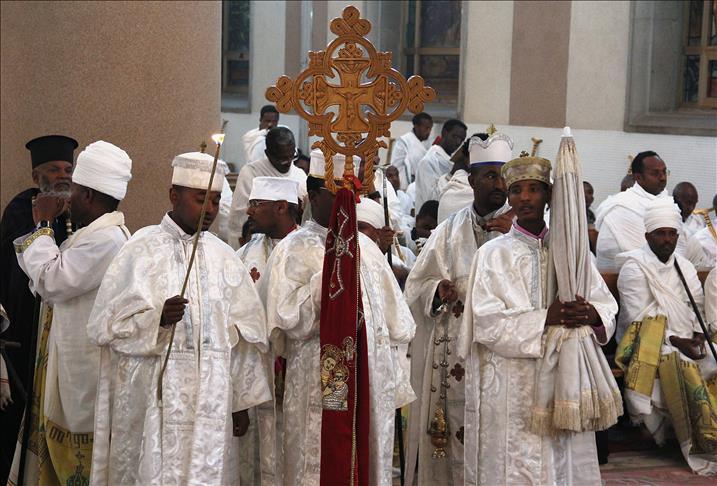Joaquim Magalhães de Castro
Of Galician origin, João Bermudes first embarked for India in April 1515 in the fleet of Lopo Soares de Albergaria.
In 1520 he landed in Ethiopia where he remained until 1535, the year in which he traveled overland back to Portugal.
Arriving there in 1538, he soon decided to return to Ethiopia but was held back by illness and only returned to India the following year.
He disembarked again in Ethiopia in 1541, remaining there until 1559, the year in which he returned permanently to Portugal.
And what did he do during the 33 years he lived in Ethiopia?
It is assumed that from 1526 to 1535 he practiced his profession as a physician.
However, in 1535, when the Patriarch of the Ethiopian Church, Abuna Marcos, was dying of old age, the Ethiopian Emperor ordained John Bermudes as his successor and future Patriarch.
Years before, Zagazabo, an Ethiopian bishop, had headed Prester John’s second embassy to Lisbon, arriving there in 1527. The objective was the same as the previous one: to establish an alliance that would ensure Ethiopia’s survival as a Christian kingdom in the midst of fierce Muslim powers. Nine years had passed and the Emperor had not heard from his ambassador.
So, he decided to send João Bermudes to Lisbon to know if Zagazabo was alive and if the desired alliance with Portugal was possible. King D. João III received the new Prester João’s embassy very well and soon tried to join Zagazabo who was around there without doing anything useful either for Portugal or for the Emperor of Abyssinia, as Ethiopia was then called.
Of Prester John’s requests to the Portuguese King, in addition to soldiers and weapons there was the marriage of the two monarchs’ children in order to bring the two peoples together and unite and the sending of technicians to help him divert the course of the Nile thus turning its northern enemy, Egypt, into a desert.
History tells us that D. João III did not marry his son to any Ethiopian princess; thus the reality that the Nile continues to flow along the course that nature has given it.
As a result of his coming to Lisbon, João Bermudes obtained an expeditionary force of 450 men that greatly helped to preserve Ethiopian security.
Arriving in Ethiopia in 1541, D. Cristóvão da Gama, son of the famous navigator, took command of this expeditionary force and there they went to help the Ethiopian Emperor’s interests until, already fed up with many mishaps, noting that the riches of the “kingdom of gold, frankincense and myrrh” were nothing more than pure imagination, they decided to return to Portugal. But the Emperor did not want to let them go and they had to flee.
It was in this escape that D. Cristóvão da Gama died in combat. João Bermudes had already got rid of the miter and the bishop’s vest and managed to reach the Red Sea where, in Massuá, he was taken by a Portuguese fleet. The year was 1559.
Through Diu and Goa, he traveled to Lisbon… Finally in peace, João Bermudes amused himself by writing his memoirs. He died peacefully on March 30, 1570.


 Follow
Follow


